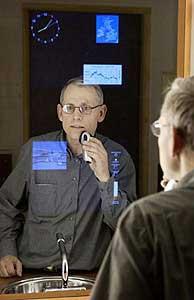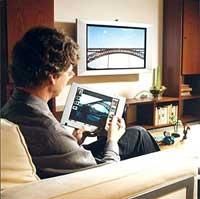Smart Environment Lab
In fact, today it is possible to reach the portal of the house, that a sensor identifies by voice or smell and that the door of the house opens automatically. And just enter the house, turn on one type of music or another, more or less dim the light or change color the walls, and all this automatically, without us doing anything. In addition, the tools can know in advance the language in which they have to speak to each person, since they are taught previously. This is called an intelligent environment.
Created in Europe

The term Intelligent Environments is born in Europe. The European Commission created a group to define what smart environments would be and what uses or applications would be based on.
In Europe Philips has started working on this technology and in the United States Massachusetts Institute of Technology. The last two have started working on everyday tools and situations: domestic tools, cars, traffic influence... The smart environment can have dozens of applications. The Tekniker Foundation, for example, will address this new technology in the industrial field.
Tekniker Hand Smart Milling Machine
The smart milling machine will be one of the projects to be developed at the Tekiner research centre over the next two years. Tekniker wants to work on new ways to command machines to increase safety along this path and has launched a project to turn a milling machine into intelligent.
The machine will have the ability to recognize each operator and, therefore, will tell each one what tool to use, and in some cases will supply the tool with robots. In addition, the machine will monitor at all times whether the operator has all the necessary material, for example, if he has gloves or not.
This project has begun and lasts for two years. To begin with, they plan to open a laboratory. A machining machine, a special milling machine will be used. Currently this machine is used conventionally, but from now on voice and odour sensors will be used. The operators will be given special glasses that will inform of the machine in front so that they know better the characteristics of the tool and have clear what to do exactly. This way you can avoid certain errors.
The machine will also control the quality of the product through the electronic noses, since in case of poor mixture of materials, the electronic nose alerts them as soon as it detects foreign smells.
Less autonomy and privacy for employees

The staff working on this TEKNIKER project is aware that this new technology also has failures. Among other things, it prevents the autonomy and privacy of employees. On the other hand, it is not beneficial for users to have several sensors in sight, as it can be altered. To analyze all these problems and find solutions, some sociologists are also working on this project.
www.ihobe.net
Buletina
Bidali zure helbide elektronikoa eta jaso asteroko buletina zure sarrera-ontzian











